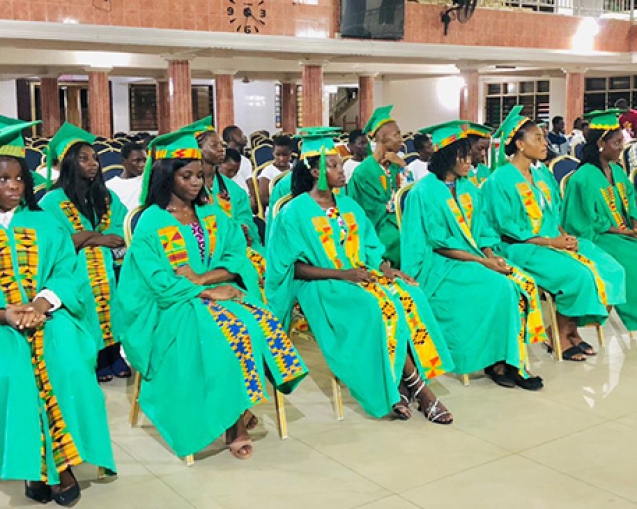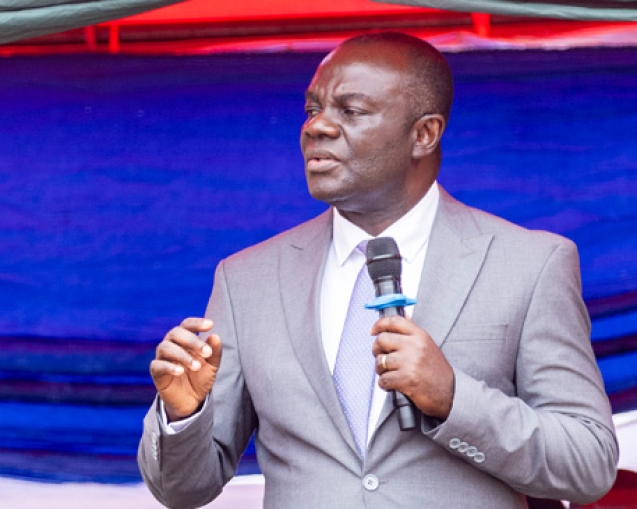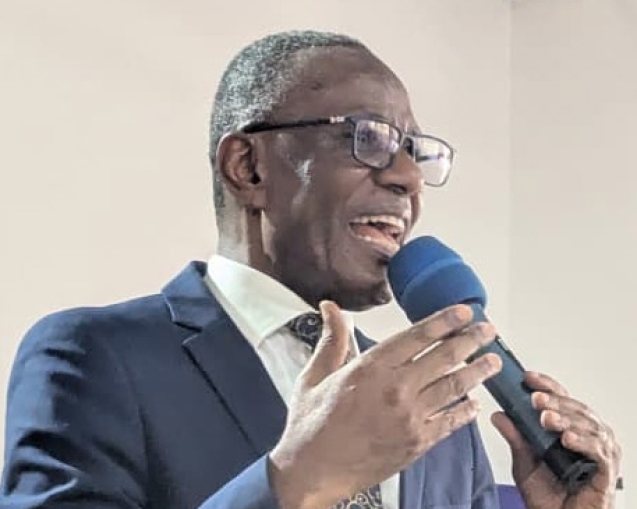INTRODUCTION
In the statement that can be appraised as defining the ministry of the man Jesus Christ on earth, a joyful announcement of a time in the mission of God in which good tidings would pervade human existence is given. Citing Isaiah 61:1-2 in 4:18-19 of Luke’s account of the Gospel, Jesus indicated to his audience that he has received anointing to bring redemption to the poor, prisoners, the blind, the oppressed, and “to proclaim the year of the Lord’s favour.” It tells an exciting news about the penetrance of the Spirit in human history leading to viable transformation in the spiritual and physical welfare of people. This act of redemption in Christ essentially informs the approach that the Church in its ministry to the world ought to adopt.
This essay discusses the plausible ethos of mission which should underpin the spread of the Church’s tentacles into the recesses of the institutionalised prisons in modern civilisation to champion a holistic transformation of incarcerated persons. Pentecostals in their quest to leave no stone unturned, have defined a philosophy of mission that takes into account the holistic transformation of people and places. The essay briefly shows how Pentecostal missional spirit, exemplified in The Church of Pentecost (hereafter CoP), has seen the progress of social action with particular reference to prison ministry in Ghana. It thinks that such a ministry is highly tenable per the impressive design of humanity’s redemption in Christ.
THE PRISON CONCEPT IN BIBLICAL AND WESTERN THOUGHT
Prisons already exist in Egyptian civilisation in Bible times. Recounting the circumstances under which Joseph and the others have been incarcerated (Genesis 39:7-23; 40:1-3), it suggests that prisons were classically designated for political offenders mostly. The same can be said of Samson (Judges 16:20-21). Such conceptualisation also existed among other nations including Assyria and Babylon (2 Kings 17:4; 2 Chronicles 33:11; Isaiah 20:4). When the nation of Israel translated from theocracy to monarchy, such an understanding has been adopted from the other nations. Prior to this, Israel has been introduced to the idea of prisoners of war (Deuteronomy 20:10-15). In fact, Israel, the nation of God has had a fair share of being prisoners of war at various stages of its political history. The Old Testament is pervasive with the practice. Prisoners of war and their subsequent release or the giving off of people as prisoners of war as recompense for debt, would later inform the theology of our redemption in Christ.
By the time the Greco-Roman world, whose thought impacted heavily western culture, rose to prominence, the concept of prison saw expansion within a system of justice to include offends of various kind towards the building of a more civil society. In Luke 23:17-19, the account talks of one Barabbas who has been imprisoned for leading an insurrection in the city. Matthew 27:16 identified Barabbas as a “notorious prisoner.” The incarceration of John the Baptist by Herod because he spoke against a marital infidelity he was engaged in meant that even in this later civilisation, governments concentrated absolute powers and throw people in prison without trial (Mark 6:17).
Religious reasons also saw to the imprisonment of people. Though the Greco-Roman culture was initially religious tolerant because the Jews were at least allowed to practice their religion, imprisonment occasioned by matters of religion later increased in the religious pluralistic Greco-Roman world. Christians suffered not only imprisonment but persecution of various forms due to their refusal to sacrifice to Roman gods. The will of God was to prevail when later under Roman Emperor Constantine, the Roman Empire was Christianise. Christianity became the approved religion of the whole Empire.
It can be assessed that the development of prison concept serves the purpose of imprisonment as a means of punishment, character reformation, rehabilitation and consequent incorporation of prisoners back into normal life in society. It is also obvious that whilst history presents with cases of persons who have been rightly imprisoned as means of punishment and attitudinal change, many have also wrongly suffered prisons. This makes the concept of prison in judicial system, a special area that Christians must speak to. Ensuring justice in the world is a mandate of the Christian faith.
GHANA’S EXPERIENCE
Perhaps prisons in Ghana remind us of our sad colonial past. The forts in Ghana which tell stories of Ghana’s past were the initial prisons in Ghana. The incarcerations which took place when the prison concept was transported from Western culture to Ghana, were significantly based on indigenous people flouting the rules of the colonial masters. It would be difficult to prevent yourself from crying when you visit some of the places that held prisoners in the past. Prisons survived the colonial period and were also utilized by indigenous politicians. The abuse of prisons continued. A good example is the Preventive Detention Act promulgated in Ghana on July 18, 1958. This Act permits that people who are deemed a threat to national security be detained for as many as 5 years without trial or any charge whatsoever. Within the 5 year period, detainees have no right of appeal to the courts. Many people suffered under this Act prior to its later revision.
In those days, as it is realised today too, the conditions of the prison facilities were substandard. They do not present themselves as able to fulfill adequately the principles underlining modern prison concept. One of the age-old concerns is the existence of adequate space in prisons to house inmates. Sergeant Ambrose Imoru Salifu in his work, “Beginning of Ghana Prisons Service” indicated that the colonial government once upon a time decided to modify the prison system in its colonies to make it conform to what pertains in England. Key among the attempts to overhaul the prison system is to ensure that prison facilities are spacious enough to house prisoners. This can be ascertained in a letter written in 1869 by the then secretary of state and cited by Sergeant Salifu. This letter gave directives on how to check overcrowding in the prisons without expanding the facilities, subsequent to the decision to change the prison system. On how to ensure space in the prisons, he quoted the letter thus, “it may be done by resorting to shorter and sharper punishments, by whipping in addition to shorter terms of imprisonment or in total substitution for any imprisonment, by substituting in the early stages of imprisonment strictly penal labour and by lowering the diet to the minimum required for health.” This rigid approach to ensuring space in the prison facilities would not warrant the following; adequate attitudinal change, empowerment of prisoners to become better citizens, vocational and skills training, psychological shaping and general improvement in the personality of prisoners. The fact is that, there is still great deficiency in the prison system today. A better way to ensure proper modification of the prison system must be pursued. I think the CoP is on course in ensuring a remarkable transformation of the prison system in Ghana.
Today, the Ghana Prisons Service maintains that treatments meted out to prisoners must be “guided by training, reformation and rehabilitation.” In its “Ten-Year Strategic Plan” spanning 2015-2025, the Ghana Prisons Service intends to achieve this by taking steps to “establish modern training workshops and re-equip existing ones with modern equipment.” One reason given for this move is reduce the situation where ex-convicts return to criminal activities. This reason is to be taken seriously. Reports show that substantial number of ex-convicts go back to criminal activities. For instance, the 2018 report of the Ghana Prisons Service show that out of the 13,971 average number of prisoners in Ghana, 1,505 were reoffenders. Thus a move to place prisoners on the job market is to be encouraged. It also plans to employ the service of clinical psychologists and professional counselors to aid the reformation and rehabilitation of prisoners. It further intends to ensure that the fundamental human rights of inmates are protected in the treatments given to them. Meanwhile, in this same strategic plan, the Ghana Prisons Service showed concern for the overcrowding nature of remand prisons, and frowned on inhumane treatment of prisoners. Such a plan must be supported towards fruition.
IN CHRIST IS OUR YEAR OF JUBILEE
The backdrop to Isaiah’s prophecy (Isaiah 61:1-2 referred to above) that informs the mission statement of Jesus, is the Babylonian captivity situation the people of God found themselves. Under Nebuchadnezzar II, King of Babylon attacked Judah, the people of God and took many captives. Revolts against Babylonian rule ended up in failure (2 Kings 24:8-17; 24:18-20, 25:1-26). The Lord through the Prophet declares a time of redemption and restoration of Judah. The prophet called it “the year of the Lord’s favour.” In this eschatological period in the life of the people of God, they would earn their salvation from Babylonian imprisonment.
This promise of redemption reminisces the year of Jubilee as ordained by God in Leviticus 25. In the year of Jubilee, freedom is proclaimed through the land of Israel. Key features of the year of Jubilee include redemption, freedom from debt, rest from labour, and release from captivity. In the year of Jubilee is redemption realised and restoration achieved. The expression “acceptable year of the Lord” or “time of the Lord’s favour” has been linked to the Christ in Isaiah 49, particularly verse 8.
Redemption being linked with freedom from captivity or imprisonment has survived the Old Testament period and has found important application in the doctrine of redemption in Christ. Christ has paid the debt that has kept humanity imprisoned by sin. Freedom has been proclaimed to all those who put their faith in the finished work of Christ. Such people “are justified freely by his [God’s] grace through the redemption that came by Christ Jesus” (Romans 3:24, NIV). Life in Christ is our desired Jubilee. Thus prison theology is essential in Christian soteriology (study of the doctrine of salvation).
PRISONS AS MISSION FIELD
Pentecostal mission knows no bound. Since the movement began, the Pentecostals have been on the quest to preach the Gospel to the ends of the earth. They appropriate the power of the Holy Spirit as promised by Jesus in Acts 1:8. Professor Allan Anderson, the doyen of Pentecostal Studies indicated that in recent times, Pentecostal mission is the most successful. He realises that this is as a result of the strong emphasis on mission and evangelism. The CoP exemplifies this excellently. Many other scholars in and out of Ghana testify to this.
Pentecostal mission has advanced to such an extent that social ministry has become an integral part of it. Considering the missional tenacity of Pentecostals, many people have benefited greatly from the love of Christ which was shown to them through Pentecostal mission so that both the body and spirit of the saved are transformed by the Gospel. The CoP has embraced social ministry as key to its mission. Prison ministry has become its concern by dint of this missional ethos of the church. Its “mission statement” does not alienate the Church from the secular polity of Ghana but seeks to impact communities. This underlies the significant contribution the CoP has made to the educational, health, and other sectors of Ghana. Recently the CoP has taken its long standing prison ministry to higher level. It points to Hebrews 13:3 to advance a case for a holistic prison ministry. The text reads, “Continue to remember those in prison as if you were together with them in prison, and those who are mistreated as if you yourselves were suffering” (NIV). This demonstrates a continuing Pentecostal missional idea of prison ministry. The contribution to the general socio-economic fortunes of Ghana has been lauded by many. It is being advanced as the years go by. The Vision 2023 of the CoP carries great concern for the larger society. Since the vision took effect fully at the beginning of the year 2019, many projects have been carried out to put in effect its aim of transforming society.
Dr. David D. Daniels III, the respected American Professor of Church History, has classified the general social ministry of the CoP into “relief,” “renovate,” “reform,” and “repair.” This is important because it indicates the orientation of the CoP as it engages the larger society. I think that the prison ministry being undertaken by the CoP captures in diverse amounts the categories of CoP’s general social engagement put together by Prof. Daniels III. The Relief aspect is seen in the many donations the CoP has made to various prisons in Ghana over the years. Donations include food, clothes, personal hygiene items, shelter among others. The most recently reported relief outreach undertaken by the CoP was the donations made by the Men’s Ministry of the Kasoa Area of the CoP. Assorted items amounting to GH 29,700 were donated to the Awutu Senya Prison Camp in the Central Region of Ghana. With the Renovate class, which “seeks to maximize human potential,” the CoP recently built and donated to the Ghana Prison’s Service an ultramodern camp prison in Ejura in the Ashanti Region of Ghana. Others are to follow. Contained in the facility is a centre that provides educational and vocational training that would provide inmates skills thereby finding them a place in the job market of Ghana. This would enable their livelihood. The Reform class is seen in the restructuring of prison camps. The projects being undertaking by the CoP departs sharply from the old facilities many of which undermine the humanity of the inmates. The structuring of the projects have introduce some kind of civility in prisons unprecedented in the history of prison facilities in Ghana. In the Repair class, the entire structuring of the prison facility seeks to rethink the pervasive perception about prisons and to show that such facilities should rather be places for the shaping of the personality of prisoners. The environment of the facility alone would make inmates feel that they are part of the larger community. That knowledge would aid positive shaping of their personality. Provisions have also been made for the spiritual transformation of prisoners. The old idea of prison has been repaired by the prison projects being pursued by the CoP.
CONCLUSION
It has been showed that in the Ghanaian context, prison as mission field for Christians is highly tenable. More so, prison theology has proven to be key to the discussion of redemption in Christ. The ministry to prisons must be holistic. It must seek to rehabilitate the spiritual and physical life of prisoners. The larger society stands to benefit greatly if careful attention is given to prisons ministry in Ghana. If there is any place in society in which we witness a tangible case for “whilst we were yet sinners Christ died for us,” it is in the prisons. A missional church must be bothered about the prison system of the nations. Prison ministry as can be seen in Pentecostal missional philosophy must be understood and joyfully embraced.
By Elder Dr. S. Ofotsu Ofoe


















